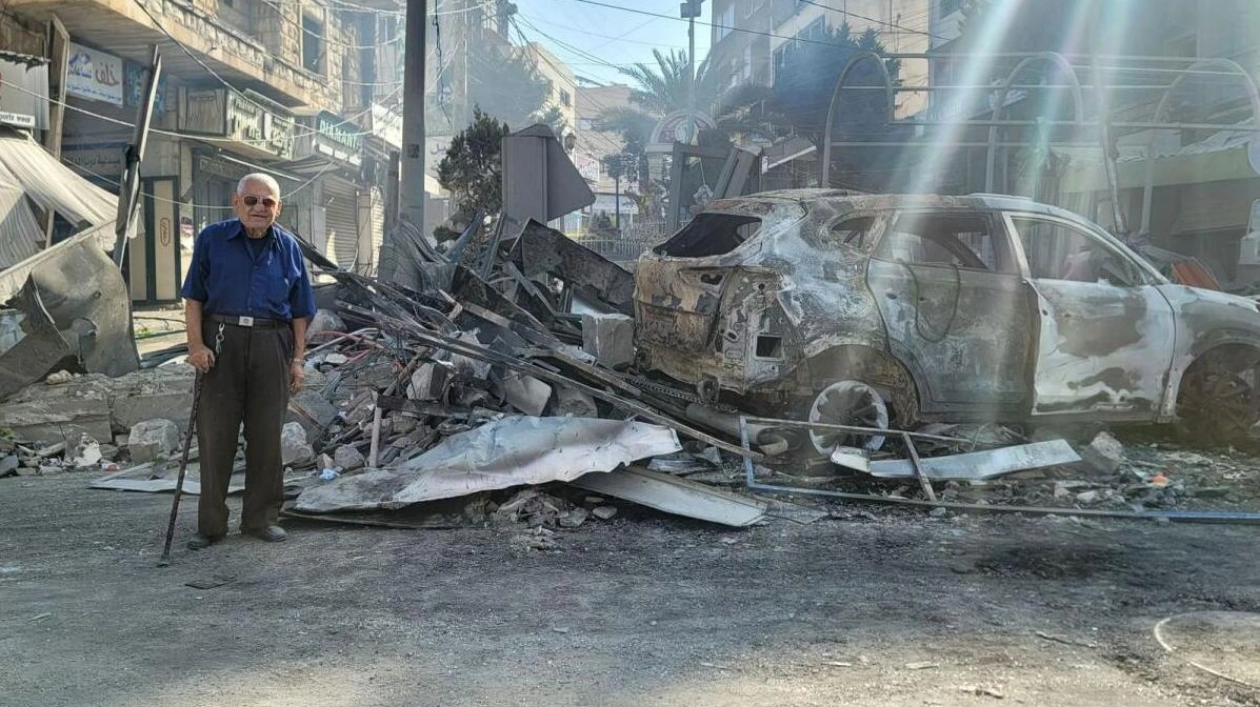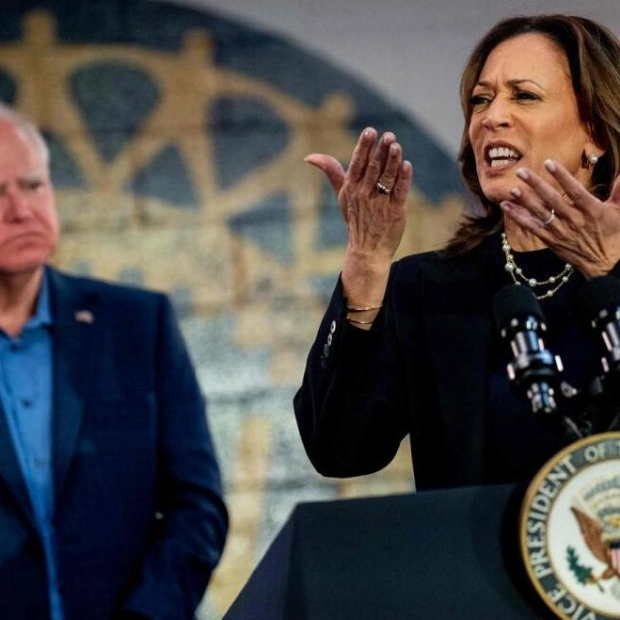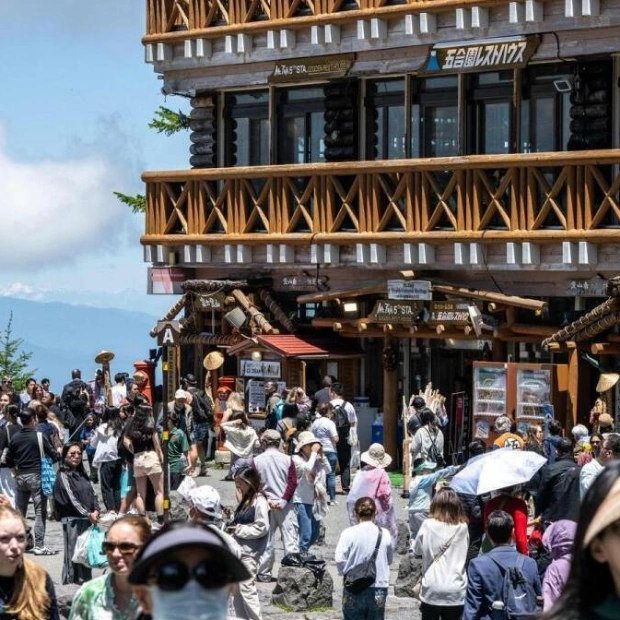A man passes by the remnants of a shop the day after an Israeli airstrike hit the marketplace in the southern Lebanese city of Nabatiyeh on October 13, 2024. — AFP
On Sunday, only rubble and smoke filled the once vibrant Nabatiyeh marketplace, the heart of the city in southern Lebanon, where Israel has escalated its bombardment. State media reported Israeli air strikes on the marketplace of this major city, located about a dozen kilometers from the border with Israel, late Saturday. The health ministry reported that the attack injured eight people. Israel's military has yet to comment.
Resident Tarek Sadaka described the scene, saying, "It's as if an earthquake shook the Nabatiyeh market. It's been completely destroyed." He added, "Even the street corner where we used to sit and drink coffee in the morning was destroyed." The bustling market, which housed shops selling everything from clothing and jewelry to sweets and small restaurants, was severely damaged by the air strike.
Sadaka, struggling to hold back tears, said, "Words can't express what I feel." He vowed to stay in Nabatiyeh, stating, "I'm staying here and I will not leave Nabatiyeh — Nabatiyeh is our motherland. It's heartbreaking to see people's livelihoods gone." Nearby, flames continued to lick at the chipped masonry on Sunday as black smoke rose from the ruins. Electrical wiring dangled from the shattered facade of a three-storey building, its walls blackened. A bulldozer worked to clear the debris blocking the streets, while only one tree remained standing amid the widespread destruction.
Nearly a year of cross-border exchanges between Israel and Hezbollah over the Gaza war escalated into full-scale conflict on September 23. Since then, Israel's intense military campaign has killed more than 1,260 people in Lebanon, according to an AFP tally of official figures. It has also displaced upwards of one million people, according to Lebanese officials. Since last October, Israel has launched limited strikes on Nabatiyeh, but the damage was nothing compared to the destruction caused by the recent air strikes. Nabatiyeh is home to major public institutions, public and private hospitals, and several universities.
Helmi Jaber, an elderly man, slowly made his way around the devastated market on Sunday, using a cane. He said he lived nearby but his room was flooded when a water tank leaked after being damaged in the strike. Jaber lamented, "This was the most beautiful area and the best market in the city." He expressed fear of further strikes, saying, "We are scared... We fear there may be new strikes. They (the Israelis) do not spare anyone and want to turn Nabatiyeh into scorched earth." Despite wanting to leave, Jaber questioned, "But who will take me in now? I can barely move," squeezing his cane. He asked, "Who will look after us? Lawmakers who can afford to travel and stay in hotels? Will any of them check on us?" in reference to the country's five-year economic crisis, widely blamed on a corrupt governing elite.
For years, Mahmoud Kharabzeit, 69, would have coffee with his friends at the marketplace every day. He said he was in shock after this fixture in his life disappeared in an instant but insisted that the city would overcome the destruction. Kharabzeit said, "Nabatiyeh has been through many wars — it has been bombed, but we are still standing our ground." He vowed to stay, stating, "I will stay here. My home is here, my family house is here, and that of my siblings." Kharabzeit added, "I cannot leave Nabatiyeh. Nabatiyeh is my soul."
Ali Taha, a 63-year-old local imam, felt the loss of the market deeply. He said, "It's as if my home has been bombed. This is where we grew up and where everyone got to know each other." On Sunday, residents and others from the city expressed their grief over the loss of Nabatiyeh's iconic market through social media posts and in the streets. Writer Badia Fahs listed the shops and their owners in a Facebook post...a bookstore, a sweets shop, a clothing and shoe store, a falafel and spice shop — and a music store that filled the streets with Arabic melodies..."It is our heart that has been burnt, not just a square made of cement," she wrote.






